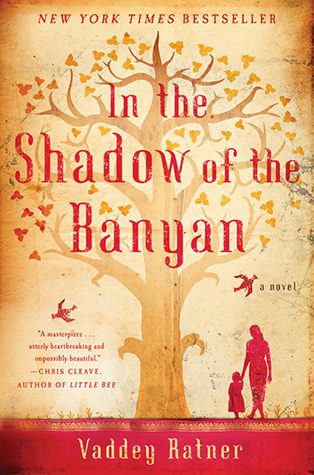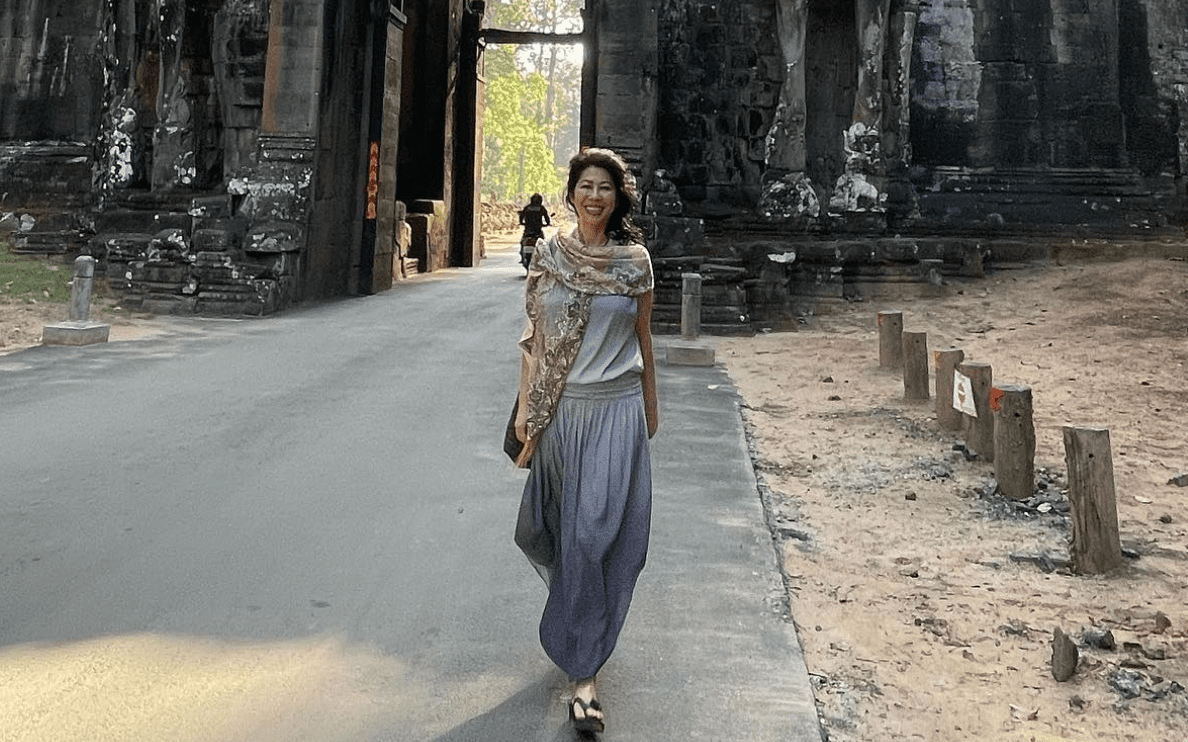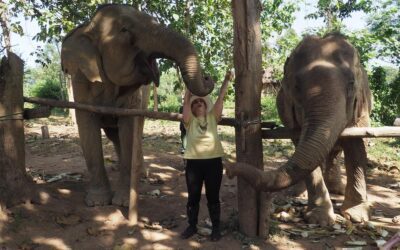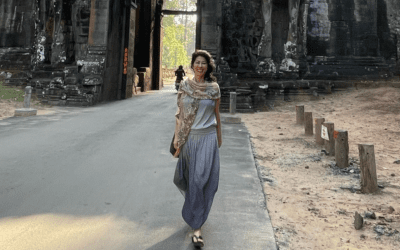Last updated on March 26th, 2024
Featured image: The majestic Banyan tree / Photo from Envato
A story of the power of hope
By Carolyn Ray, Editor-in-Chief, JourneyWoman
“A beautiful celebration of the power of hope, this New York Times bestselling novel tells the story of a girl who comes of age during the Cambodian genocide.” — Simon & Schuster
Recently, I had the incredible opportunity to interview a survivor of the war in Cambodia, Loung Ung. Loung is a speaker at our upcoming Women’s Travel Wisdom retreat in October 2022 and wrote a best-selling memoir called “First They Killed My Father”, which was made into Netflix original movie with Angelina Jolie in 2017. You can read more about Loung’s memoir and watch our interview here.
It’s hard for any of us to imagine the horrific events that took place in Cambodia in the 1970s, and even more improbable to witness the kindness and compassion that exudes from these incredible storytellers, both of whom were five years old when the Khmer Rouge stormed into Phnom Penh in April 1975, forcing families to flee their home. This month’s book has a similar focus but instead of a memoir, it is written as a novel.
In an interview on her website, when asked why she shared her story, Vaddey Ratner says: “It isn’t so much the story of the Khmer Rouge experience, of genocide, or even of loss and tragedy. What I wanted to articulate is something more universal, more indicative, I believe, of the human experience—our struggle to hang onto life, our desire to live, even in the most awful circumstances. In telling this story, it isn’t my own life I wished others to take note of. I have survived, and the gift of survival, I feel, is honor enough already. My purpose is to honor the lives lost, and I wanted to do so by endeavoring to transform suffering into art.”
“In spite of the atrocities around me, I never failed to find kindness, to encounter protection and tenderness when I most needed it. I had a strong intuition about people. In writing In the Shadow of the Banyan, I needed to draw on that intuitive understanding, that ability to see and perceive people’s humanity in a way that enlarged my own.”— Vaddey Ratner
About “In the Shadow of the Banyan”
With our partners at TripFiction, we chose this book last fall, never imagining its relevance today. Tina Hartas at TripFiction writes:
“For seven-year-old Raami, the shattering end of childhood begins with the footsteps of her father returning home in the early dawn hours bringing details of the civil war that has overwhelmed the streets of Phnom Penh, Cambodia’s capital. Soon the family’s world of carefully guarded royal privilege is swept up in the chaos of revolution and forced exodus.
Over the next four years, as she endures the deaths of family members, starvation, and brutal forced labour, Raami clings to the only remaining vestige of childhood – the mythical legends and poems told to her by her father. In a climate of systematic violence where memory is sickness and justification for execution, Raami fights for her improbable survival. Displaying the author’s extraordinary gift for language, In the Shadow of the Banyan is a testament to the transcendent power of narrative and a brilliantly wrought tale of human resilience.”
About the Author
Vaddey Ratner is a survivor of the Khmer Rouge regime in Cambodia. Her critically acclaimed bestselling debut novel, In the Shadow of the Banyan, was a Finalist for the PEN/Hemingway Award and has been translated into seventeen languages. She is a summa cum laude graduate of Cornell University, where she specialized in Southeast Asian history and literature. Her most recent novel is Music of the Ghosts.
Your book club co-hosts, Wendy and Sally, invite you to our monthly book club on June 15 at 8 pm EDT for a facilitated discussion on this book.

Find A Women-Friendly Tour to Asia
Plan your next trip to Southeast Asia with these women-friendly tours and retreats from our Women’s Travel Directory.
Book Club Discussion Questions (Wednesday, June 15, 2022, 8 pm EDT)
We may not get through all of these, but here are some thoughts to start our discussion!
- What was your favourite passage of the book and why? (And why, do you think we’ve had several books this year about trees, including “The Island of Missing Trees“, which gave voice to a fig tree in Cyprus?)
- What has your experience with Cambodia been prior to this book? Did any of the passages feel familiar to you from your own travels there?
- Seven-year-old Raami feels responsible for her father being taken from the family, and for her sister’s malaria. When you were a child, did you ever feel unduly responsible for events that were outside your control, or overestimate the consequences of your own actions?
- Raami holds onto the gift of stories from her father, using them to find refuge, empathy with the people she meets, and understanding of the world around her. Where did you feel this most powerfully in the narrative?
- There is a growing movement amongst many people with disabilities to claim these as positive and integral facets of their identities. Raami states that “my polio, time and again, had proven a blessing in disguise.” What were the advantages and disadvantages she experienced because of her polio? Do you feel this way about any aspects of yourself?
- Raami experiences a brief period of belonging when Pok and Mae take them in. Not only do she, Mama and Radana find the love of pok thor koan thor, but Raami also connects with the landscape under Pok’s care. She transitions from being a displaced city girl to one who is fascinated by the jungle, the waterways, and the creatures who inhabit them. Have you ever experienced anything like this, either yourself or through the characters of a book?
- Raami says that “Tetracycline” is her father’s “one-word poem” – why do you think she imbues that scientific word with the meaning of poetry? Have you ever felt this way about a word or phrase?
- The story is an autobiographical novel. Why do you think the author might have chosen to present her story as fiction, rather than as memoir?
- What did you know about the Khmer Rouge before reading the book? What was the most interesting thing you learned from the book about this period in Cambodia’s history?
- Does the book inspire you to visit Cambodia?
- Have you read any other books set in Cambodia that you’d like to recommend to the group?
Featured articles on Asia
Ethical Elephant Adventures in Laos
Sandy Biback recalls her experience walking with elephants at an ethical elephant sanctuary in Luang Prabang, Laos.
Cambodian Author Loung Ung: A Call to Action For Women
Meet Loung Ung, a life-long activist, solo traveller, and author of ‘First They Killed My Father, a 2017 movie directed by Angelina Jolie.
20 Less-Travelled Places For Women Over 50 to Explore
Get your map out and explore these 20 less-travelled places, based on recommendations from our readers and the JourneyWoman Women’s Advisory Council.
Cambodian Author Loung Ung: A Call to Action For Women
Meet Loung Ung, a life-long activist, solo traveller, and author of ‘First They Killed My Father, a 2017 movie directed by Angelina Jolie.
20 Less-Travelled Places For Women Over 50 to Explore
Get your map out and explore these 20 less-travelled places, based on recommendations from our readers and the JourneyWoman Women’s Advisory Council.
The Top 10 UNESCO World Heritage Sites Recommended by Women
The top 10 UNESCO World Heritage sites that women say should be on every solo traveller’s must-experience list.
Your Imagination Can Take You Places
Now more than ever, we’re finding camaraderie and inspiration through novels. Join us each month as we discuss a different book, suggested by our community, about a faraway land.








0 Comments
We always strive to use real photos from our own adventures, provided by the guest writer or from our personal travels. However, in some cases, due to photo quality, we must use stock photography. If you have any questions about the photography please let us know.
Disclaimer: We are so happy that you are checking out this page right now! We only recommend things that are suggested by our community, or through our own experience, that we believe will be helpful and practical for you. Some of our pages contain links, which means we’re part of an affiliate program for the product being mentioned. Should you decide to purchase a product using a link from on our site, JourneyWoman may earn a small commission from the retailer, which helps us maintain our beautiful website. JourneyWoman is an Amazon Associate and earns from qualifying purchases. Thank you!
We want to hear what you think about this article, and we welcome any updates or changes to improve it. You can comment below, or send an email to us at [email protected].